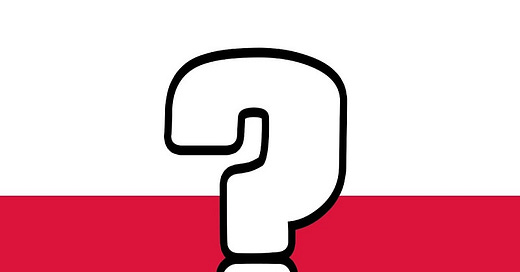What Do The Latest Surveys Say About Poles’ Attitudes Towards Ukraine & The Farmers’ Protests?
Considering that the latest surveys revealed overwhelming opposition to a conventional Polish intervention in Ukraine and overwhelming support for the farmers’ protests, Tusk would be making an epic mistake if convinced Duda to order a conventional intervention as a distraction from the nationwide protests.
Poland’s RMF 24 radio station published the results of their latest poll about Ukraine on Monday that was conducted by United Surveys from 8-10 March with a sample of 1,000 people. It found the following percentage of support for each form of aid to that country: 75% for humanitarian aid; 67.6% for ammo and shells; 54.1% for heavy equipment like tanks; 46.8% for accepting refugees; 41.1% for financial aid; 27.1% for letting Poles fight in Ukraine; and 9.4% for a conventional military intervention there.
The radio station noted that “acceptance for sending the Polish Army was zero, and support for allowing Polish citizens to fight was at the level of 3.4%” during last year’s survey, having risen to 9.4% and 27.1% respectively since then, which they editorialized could be due to “the Macron effect”. The European Council on Foreign Relations’ (ECFR) poll from January that was released last month and analyzed here was done before his speculation about a conventional intervention but still helps paint a fuller picture:
“When asked what’s the most likely outcome of the Ukrainian Conflict, 17% of Poles said that it’ll end in Ukrainian victory, 14% said that it’ll end in Russia’s, while 27% said that it’ll end in compromise. To the question of what Europe should do, 47% favored supporting Ukraine until it reconquered all its lost lands compared to 23% who said that it should push Kiev to negotiate peace with Moscow. About the Ukrainians themselves, 40% see them as a threat versus 27% who see them as an opportunity.
Only 16% of Poles would be very or fairly pleased if Trump returns to power while 41% would be very or fairly displeased by that scenario. If he limits support for Ukraine, 31% of Poles want the EU to replace lost aid as much as possible so that Kiev can keep fighting, 25% want EU aid to remain unchanged, and 19% want them to follow in the US’ footsteps by scaling back aid and promoting peace. As a whole, 34% of Poles think that the EU played a positive role so far compared to 31% who think it’s been negative.”
Generally speaking, while “the Macron effect” saw an increase in support for an indirect intervention via mercenaries by around 9x and a conventional Polish one by almost 10x according to the latest survey, most Poles are still against both and instead favor only humanitarian and armed (ammo, shells, and tanks) aid. Furthermore, it’s unlikely that their pessimism from January about victory on Ukraine’s terms changed much if at all, nor their attitudes towards the other questions asked in the ECFR’s poll.
Of partial relevance to the subject of Poles’ attitudes towards Ukraine is the minimal change in support for the farmers’ protests, which dropped from 78% in Oko.press’ Ipsos poll in February to 72% in Rzeczpospolita’s IBRis one this month. The population samples that were surveyed might account for this or it could be the clashes that took place in Warsaw between the farmers and police in early March. Whatever it may be, the change was minimal and confirms overwhelming support for this movement.
These protests are connected to the influx of cheap and low-quality Ukrainian grain onto the domestic Polish market as well as the agricultural restrictions imposed by Brussels’ so-called “European Green Deal”. This analysis here from late March assessed that the continued farmers’ protests could morph into a modern-day Solidarity movement that poses a threat to German-backed Prime Minister Donald Tusk’s rule and might then prompt him to launch a conventional intervention in Ukraine as a distraction.
It was warned that this “could backfire if the protesters refuse to comply and instead end up clashing with the armed forces, however, which could complicate this campaign at its most sensitive stage. Its success couldn’t be taken for granted then due to complexity theory teaching that initial conditions disproportionately shape the outcome of complex processes such as this one. The liberal-globalist government’s possible solution to the protests might therefore spark Poland’s worst-ever national crisis.”
Considering that the latest surveys revealed overwhelming opposition to a conventional Polish intervention in Ukraine and overwhelming support for the farmers’ protests, Tusk would be making an epic mistake if convinced President Andrzej Duda to order a conventional intervention as a distraction. It’s therefore best for him to comply with the farmers’ demands to ban all Ukrainian grain from Poland and rubbish all thoughts of a conventional intervention there lest he plunge Poland into pandemonium.




